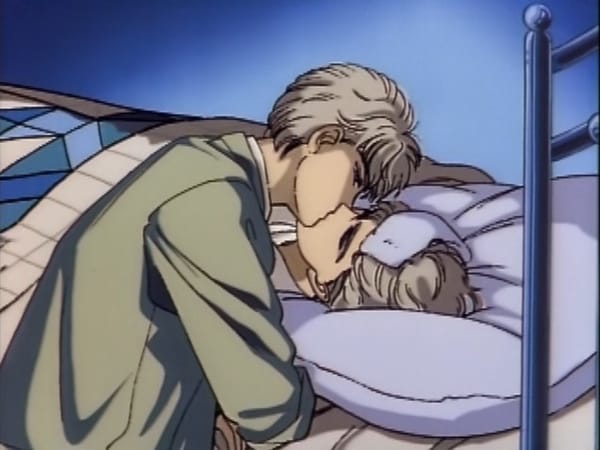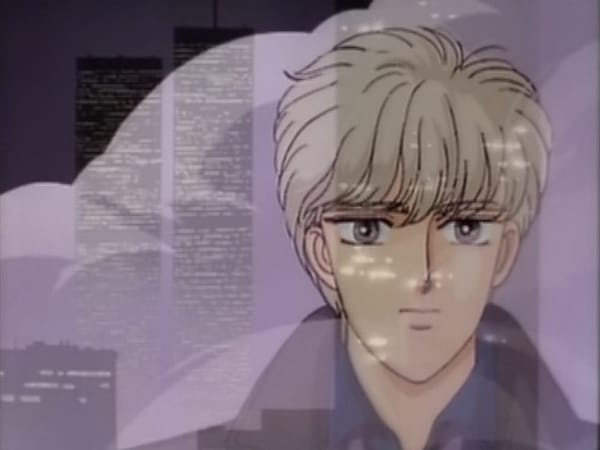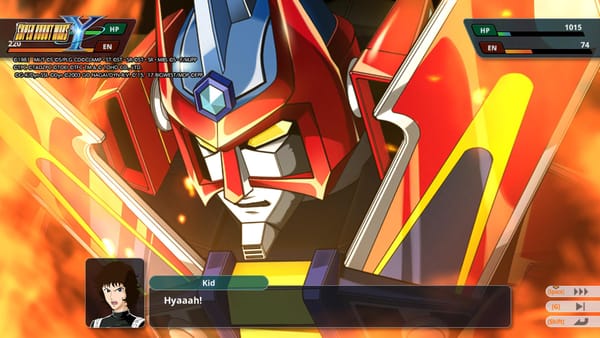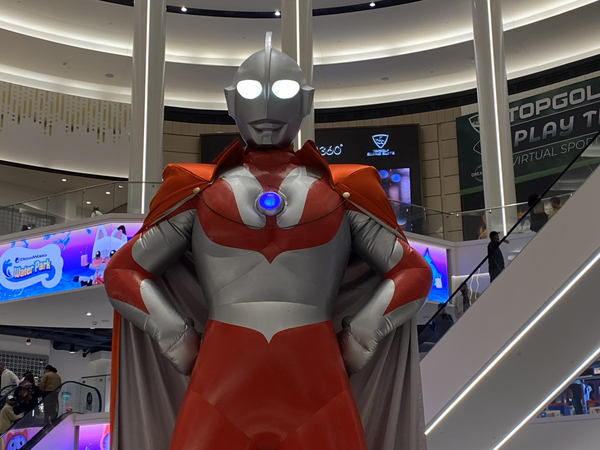Night At The Movies: Macross Plus
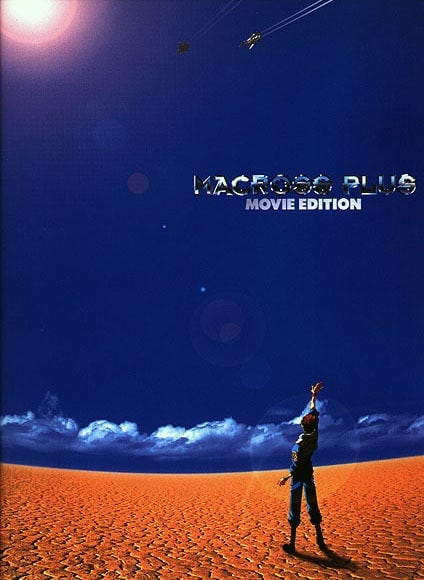
(Forgive me for just stealing images in the wrong aspect ratio left and right for this one: I don’t have an adequate quality copy of Macross Plus: Movie Edition to screenshot from. My VHS tape won’t cut it.)
I was lucky enough to see the movie cut of the classic anime series Macross Plus on the big screen this past week. I truly mean “lucky” here; up until very recently, the showing wouldn’t have been legal.
Only recently has the Macross sci-fi franchise been freed from the legal hell resulting from its US English adaptation as Robotech. Since the original 1983 series, Macross has continued as a long-running franchise in Japan, telling new stories about planes, love, and music. But the rights holders/villains at Harmony Gold have always blocked these series from international release and continued to push the original Robotech as a niche 80s nostalgia franchise, hoping for a big Hollywood or Netflix payday to come along. Macross has always deserved better than rent-seekers.
I don’t know the particulars, but the US and Japan sides recently worked things out. That’s how I got to see a beaming series creator Shoji Kawamori, free after thirty years’ wait, introduce a special one-night theatrical showing of 1993’s Macross Plus. The old man talked about Macross’ famous airplanes, and the research the staff had done on them, with the “guess what we did?” joy of a child.
With a smile, he told us that there were people on staff that didn’t believe a virtual pop idol could ever be a thing. Today, that fantasy is simply a reality. Practically mundane; you could become one tomorrow, if you wanted to. There are literal armies of them.
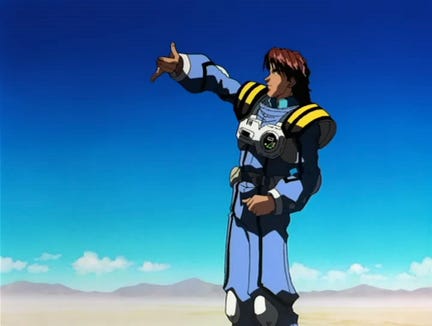
Macross Plus is about the unresolved love triangle between three reunited childhood friends, and the havoc it wreaks on a military arms race and the development of a powerful AI. It’s a big-budget prestige anime by, for, and about grown-ups, with not so much as a teen to be found. Macross Plus shares some key creative staff with the later Cowboy Bebop, and you’ll notice a similar naturalistic approach to Macross’ fantastical sci-fi setting. An alien world feels lived-in, and the characters act like human beings, not “anime characters”.
The first time I saw Macross Plus was as a teenager, and I thought in the theater this week that I really didn’t have the life experience back then to appreciate these adult characters, or the subtlety with which they are drawn.
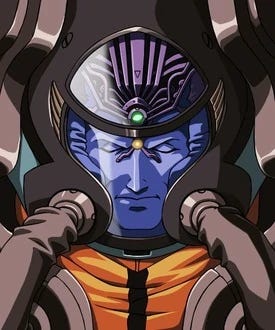
Heroine Myung has her reasons for being such a sad sack; she’s tried to live her dreams, been crushed, and become bitter and desperate. Guld isn’t really the stoic warrior type he presents himself as: he’s at war with his rage and his impulses, and when it counts, he loses to them. Protagonist Isamu is the boyish Macross ideal, in pure love with planes and the thrill of flying… but his uncompromising, free-spirited nature makes him a frustrating pain in the ass for everyone he involves himself with.
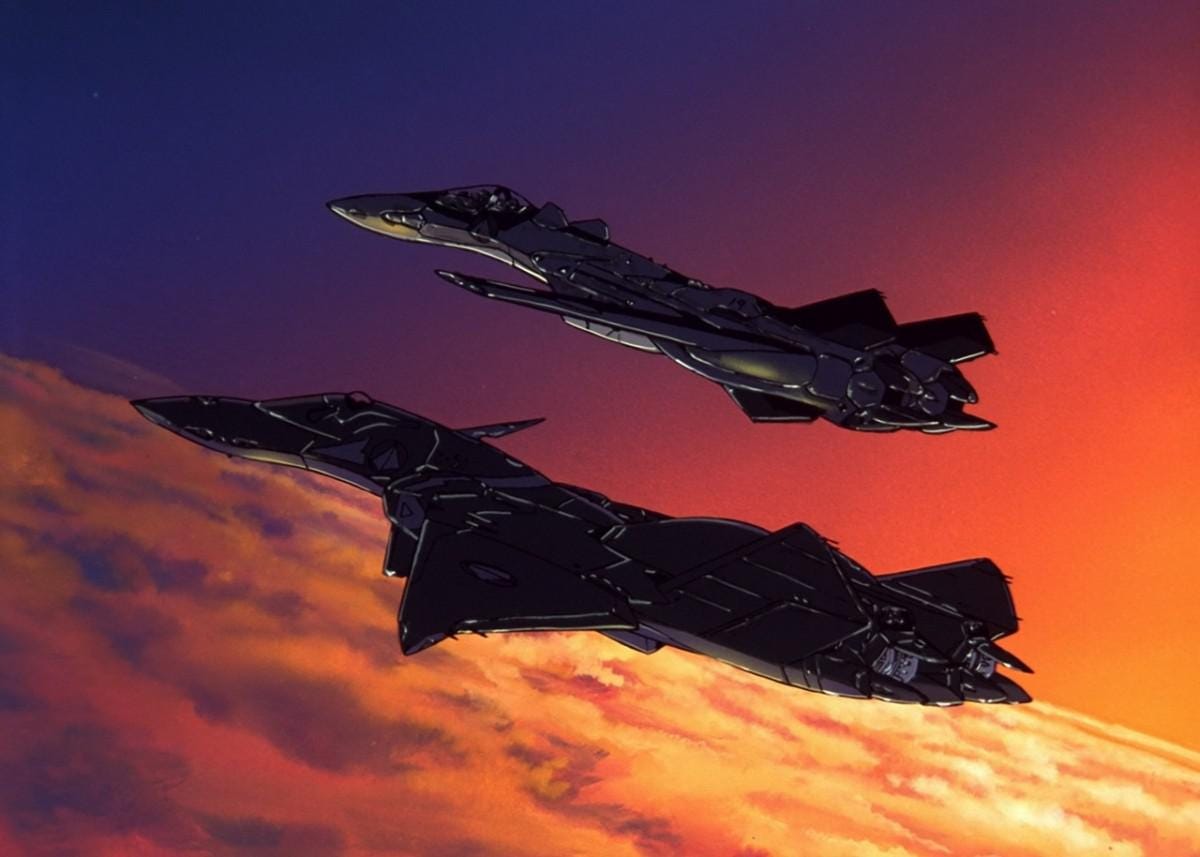
I keep mentioning planes without explaining why. Much of Macross Plus is concerned with an arms development race: two dueling development teams building and testing the best fighter jet/transforming robot they can come up with, in hopes of selling it to the government. Isamu and Guld are rival test pilots, of course, and their fight over Myung extends to the testing field, where both men proceed to lash out by doing very stupid things.
In the finest Macross tradition, the airplane maneuvers and robot battles are wrought in extreme, loving detail with some of the most exacting hand-drawn animation of the era. Communicating the intoxicating feeling of flight and the beautiful movements of the planes is essential both to the narrative and to the overall experience, and Macross Plus puts you up there.
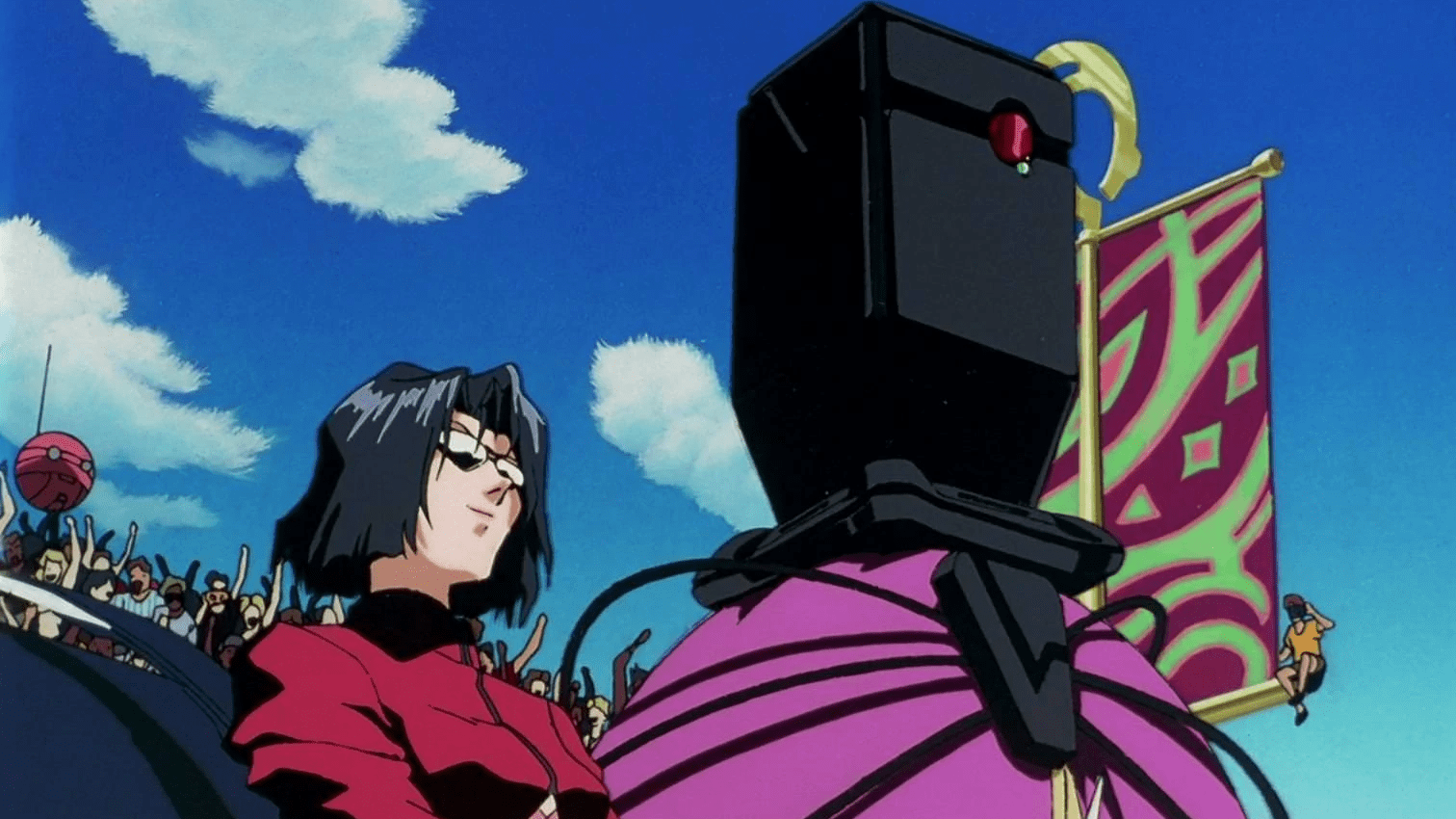
Meanwhile Myung — implied to have failed as a pop singer herself— “produces” the galactic AI pop idol Sharon Apple. Today Hatsune Miku really exists, but in 1993 this whole concept was but a dream, and they go big on it. The movie cut opens with the unforgettable visual of an ominous tower computer— dressed in a fancy gown!— making a celebrity appearance before throngs of admirers.
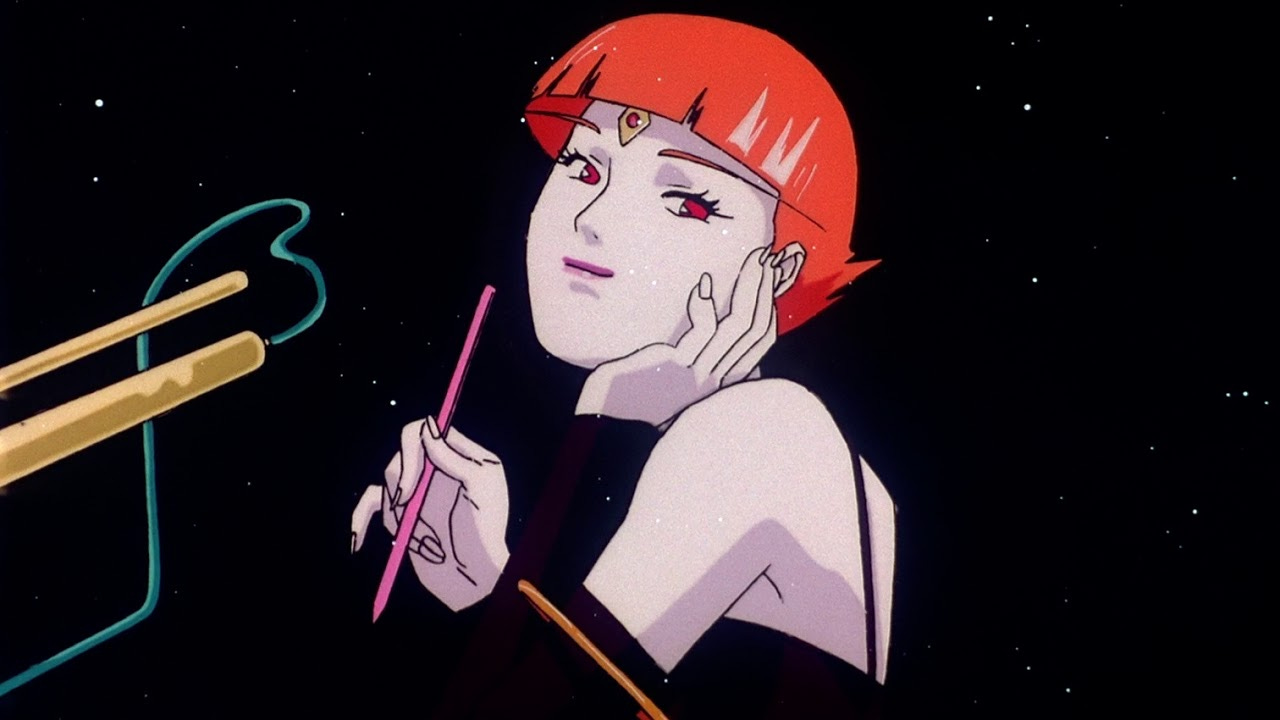
In a series that constantly shocks with its high-end visuals, the Sharon Apple sequences— hallucinatory future-pop brainwashing sessions starring a sexy hologram the size of a building— are stand-out moments that swallowed me up from the big screen. As I watched the eyes of Sharon’s entranced fans glaze over with bliss, I realized the same was happening to me.
The soundtrack is Yoko Kanno’s breakthrough debut, with distinctively alien, artificial pop used for Sharon, and a quietly beautiful theme tune that represents its polar opposite. I’m personally a fan of “After, in the Dark”, a love song sung in Zentran, an alien language of the Macross universe. I’ve embedded it here.
More than merely “producing” her, backstage Myung gives her mind to the machinery of Sharon Apple during performances, spurring a nascent self-conscious AI and inadvertently feeding it her raw, suppressed id. Coming forth from such a conflicted person as she faces down various traumas from her past, Sharon’s AI awakens as a megalomaniac bent on obtaining by any means and at all costs the one thing that Myung really wants: Isamu. Needless to say, the love triangle, the fighter jets, and the music all converge in an extended, mind-blowing action finale.
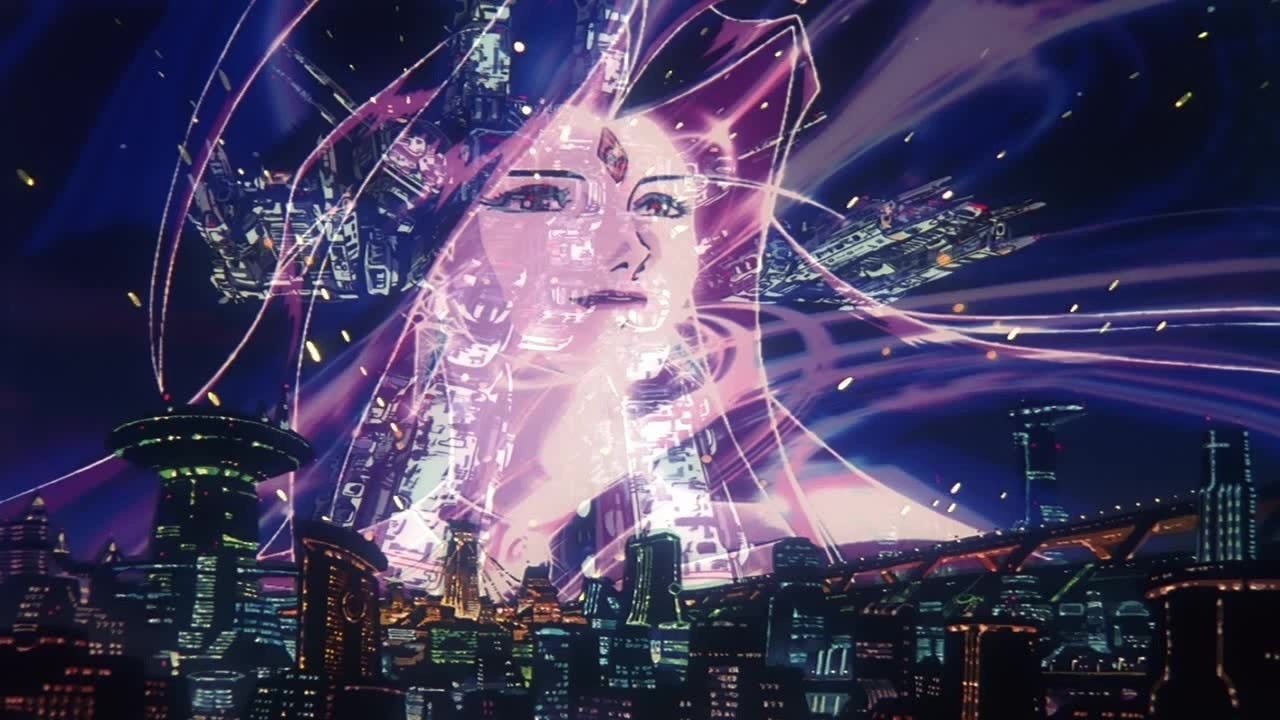
Macross Plus is an audiovisual spectacle that holds up in every way today— especially the barrage of its final half-hour— and it was a unique treat to see it in a theater environment. The picture quality was lower than expected, and definitely not up to Blu-Ray snuff, but pretty soon I forgot about that and let myself melt into its world.
No previous viewing or knowledge of Macross lore is necessary to enjoy Macross Plus, so try it if you ever get a chance. I promise it’ll pull you in too.
Two nitpicks
I mentioned that the audio and video were not really up to HD standard: video was generally a little fuzzy and something was weird about the audio mix. I would probably not buy a Blu-Ray of Macross Plus that looked/sounded like the feed I saw on Tuesday, so I hope it gets a remaster.
Second, the songs were not translated. The emotional impact of music is a force equivalent to military power in the Macross universe, and the lyrics of the closing song “Voices” have some poetic narrative significance that is lost without an English translation.
And an aside
When you make a repeat viewing of a really dense work like this, you end up seeing a lot of things you didn’t see the first time. This time, the point that stood out to me was one of Myung’s survival tactics: her “fake” voice. When she’s stressed or angry, Myung puts on a cloying, high-pitched “I’m cute and everything is fine” voice and tries to smooth everything over. She sounds like an anime girl in a world of grown-ups; it’s a protective wall she puts up in professional and personal settings alike. Big respect to Rica Fukami’s outstanding, subtle performance as the character.
